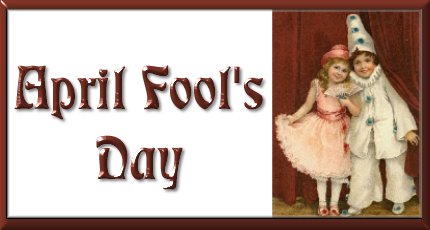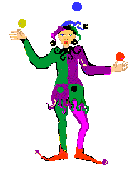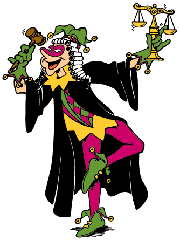|

In sixteenth-century France, the start of the new year was observed on April first. It was celebrated in much the same way as it is today with parties and dancing into the late hours of the night. Then in 1562, Pope Gregory introduced a new calendar for the Christian world, and the new year fell on January first. There were some people, however, who hadn't heard or didn't believe the change in the date, so they continued to celebrate New Year's Day on April first. Others played tricks on them and called them "April fools." They sent them on a "fool's errand" or tried to make them believe that something false was true.
The history of April Fool's Day, sometimes called All Fool's Day, is not totally clear. There really wasn't a "first April Fool's Day" that can be pinpointed on the calendar. Some believe it sort of evolved simultaneously in several cultures at the same time, from celebrations involving the first day of spring.
ĚLet us be thankful for the fools. But for them the rest of us could not succeed. -- Mark Twain
 
Most Fools are hugable.
|